Upcoming Events
Sherlock's Genealogical Adventures
Follow Sherlock on his adventures into genealogical mysteries.
6 minutes reading time
(1250 words)
History of Dwór Czarne (Black Manor) in Jelenia Góra, Poland
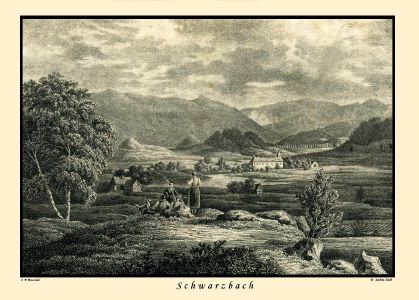 Lithograph from about 1850 by E. SacheA number of Blog posts ago I wrote about Dwór Czarne and the search for the Polish Manager after WWII. In this post I will present a history of Black Manor.
Lithograph from about 1850 by E. SacheA number of Blog posts ago I wrote about Dwór Czarne and the search for the Polish Manager after WWII. In this post I will present a history of Black Manor.When it comes to the timeline of this interesting and still very mysterious structure, I suggest you remember the year 1559. So far this is the only reliable data. Here is a quote:
"ONE THOUSAND FIVE HUNDRED AND 59th YEAR – I, KASPER SCHOFF CALLED GÖTSCH ALONG WITH CHOJNIK & KARPNIK AT BLACK STREAM, WITH THE GRACE OF GOD ALMIGHTY, I STARTED TO BUILD THIS HOUSE"
(The inscription on the portal translated from the original Old German)
But the origins should be sought much earlier. Archaeological research in the area showed traces of settlements to the turn of the ninth and tenth centuries. The mention of the German Schwarzbach was already in the list of villages, which in 1305 paid rent to the office of the bishop of Wrocław. Analysis of the mansion walls clearly shows the outlines of a lot of the older stone building with a drawbridge. Could there be truth in the legend about the "castle on the Pijawnikiem" at the Battle of Legnica in 1241? Research continues ...
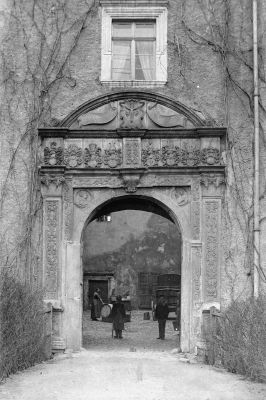 The Portal mid to late 19th century
The Portal mid to late 19th centuryJacek Jakubiec
THE PORTAL
Residents of Black Manor, during the first 6o years of the twentieth century in the former state farms visited the street Strumykowa, recorded in their memory they could see the richly carved, sandstone portal, which adorned the central part of the facade of the mansion. It was the very high-class work of an anonymous artist-mason 450 years ago. In addition to an interesting, full of compositional harmonious tectonics, the portal passed on various pieces of information and important messages. This is a topic worthy of deeper analysis, which is waiting for art historians and experts from iconography and heraldry. And also for anyone who likes monuments, because they know that monuments can speak.
Here is a unique picture of the portal, probably taken in the mid-nineteenth century. The original is in the Karkonoskiego Museum. Extremely high quality photographs allowed complete reconstruction of the portal.
HISTORY OF Black Manor
In the IX-X century there is an early medieval settlement
1301 - Village history speaks of a noble family - Talkenbergów, and later, families Zedlitz, Stoschen, Rechenberg, Reibnitz, Liebeteller, Hohberg Gotsche ("der von Gotschen", later Schaffgotsch).
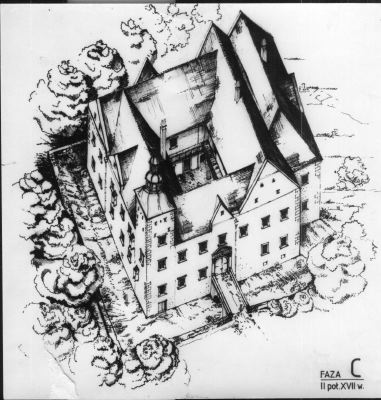 Sketch from about 17th century by Heinrich Lan1559 - Kasper II Schoff-Gotsche began construction of the mansion in the style of the early Renaissance, adapting an existing medieval castle defense here.
Sketch from about 17th century by Heinrich Lan1559 - Kasper II Schoff-Gotsche began construction of the mansion in the style of the early Renaissance, adapting an existing medieval castle defense here.1623 – During the 30-year war, the manor breaks out in fire, burning a number of peasant buildings and a mill.
1656 - Ernest von Nimptsch (father) completes reconstruction and expansion of the manor.
1679 - Ernst von Nimptsch (son) sold the countryside together with the manor to the city of Hirschberg (Jelenia Góra)
1720-1729 – The manor, after another fire, is in decline; which results in the restoration of the pile of rubble.
1785 - Black Manor belongs to the holdings of the King of Prussia
1801 - Fire destroys farm buildings
1809 - The property is still owned by the Royal holdings, and is leased by the City
1885-1907 - Modernization of the manor, the demolition of the eastern tract, the manor takes its present shape, the interior loses its artistic merits: the eradication of Renaissance paintings, ceramic stoves, and parts of the coverings on the ceiling beams.
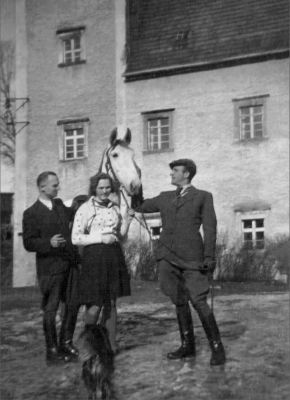 Stanisław Firkowski with a horse - courtesy of: Piotr Górnika, grandson of Stanisław Firkowski
Stanisław Firkowski with a horse - courtesy of: Piotr Górnika, grandson of Stanisław Firkowski1927-1945 - The last tenant of the property is a German engineer. Ludwig Rahm. His family leaves Black Manor in October 1946 (going to Hanover, Germany)
1945-1948 - The property manager is Stanisław Firkowski. who carries out maintenance work outside. After the establishment of the state-owned farm, he goes to Gliwice (?)
Under the ownership of the company "Wojanów" the historic mansion fell into disrepair and in the late 70's it is left deserted and devastated, the owner calls for demolition, which is opposed by the county conservator.
02/06/1981 – A group of members of the Polish Ecological Club visits the manor ruins, it is the beginning of the campaign to save this monument.
From spring 1983 until 1987, renovation continues and security is set in place, archaeological excavations and research on the history of the Manor; financing acquired to form a resort.
In March 1988, the idea was created for a resort here and implementation of environmental practices, which on 11/18/1988 was materialized in the form of the company "Centre for Ecological Culture (ECO)".
01/08/1990 - The Foundation for Ecological Culture (FKE) was formed as a continuation of something that was started 19 years earlier as a civic campaign to save and revitalize the Manor.
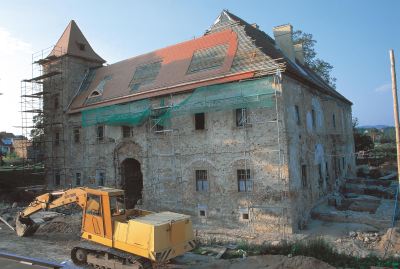 Renovations continue in 2000 - Photo: Aureliusz Marek Pędziwol09/1992 - FKE, the creator of the idea of the International Centre for Ecological Culture "Manor Black" enters into an agreement with the city of Jelenia Góra and takes on the role of investor to target restoration of the monument.
Renovations continue in 2000 - Photo: Aureliusz Marek Pędziwol09/1992 - FKE, the creator of the idea of the International Centre for Ecological Culture "Manor Black" enters into an agreement with the city of Jelenia Góra and takes on the role of investor to target restoration of the monument.11/11/2007 - FKE receives honorable mention in the pro bono work competition for the best society in the category "Environment and Regional Development."
04/18/2008 – The Foundation for Ecological Culture receives ownership of Black Manor and the countryside via a notarial act of donation.
05/26/2010 - The International Society for Ecological Culture "Black Manor" was formed and was designed to support the FKE mission.
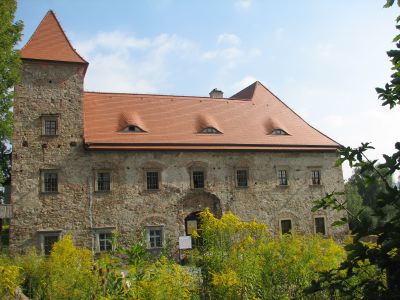 Black Manor Façade 26 August 2007, by: Jacek JakubiecTHE FOUNDATION FOR ECOLOGICAL CULTURE
Black Manor Façade 26 August 2007, by: Jacek JakubiecTHE FOUNDATION FOR ECOLOGICAL CULTUREWas formed on 1 August 1990
Here we understand the ecology largely as it concerns the status of the natural, cultural and social environment. It is all for the successful existence for future generations.
Here. Jelenia Gora continues the initiative with its first "Solidarity". A civic action taken in 1981, to save from destruction. The sixteenth century manor house, making it the social base of the environmental movement. In recognition of this environment in saving Manor "Black", the City Council decided to donate the property to the FKE. This was made permanent on 04/18/2008,
The manor is a place for meetings, conferences and workshops which are organized continuously. During its 22-year history, the Foundation itself accomplished this goal, and
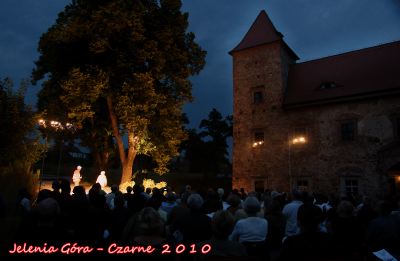 A night time gathering at the manor in 2010, Courtesy of: Black Manor archivesparticipated in the implementation of 80 projects in various fields. These include in particular, the training of personnel for the conservation of craftsmanship, renovation and maintenance of monuments. This is one of the main goals started by FKE "Wszechnica BLACK MANOR".
A night time gathering at the manor in 2010, Courtesy of: Black Manor archivesparticipated in the implementation of 80 projects in various fields. These include in particular, the training of personnel for the conservation of craftsmanship, renovation and maintenance of monuments. This is one of the main goals started by FKE "Wszechnica BLACK MANOR".The restoration of the mansion is part of a comprehensive investment program by the International Centre for Ecological Culture "Black Manor." This will not only be about the historic mansion, but also the land and buildings of the former agricultural property homestead. This comprehensive project with a unique character fits into the vision of the harmonious development of the Jelenia Góra Basin as well as priority targets of the Polish-Czech-German border communities – Neisse River Euroregion.
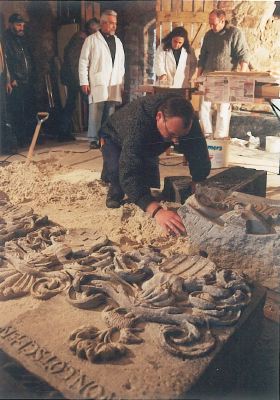 Courtesy: Black Manor archives
Courtesy: Black Manor archives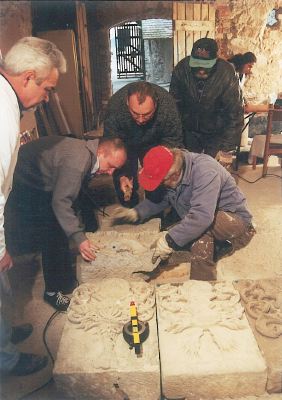 Restoration of the Portal stonesBlack Manor location:
Restoration of the Portal stonesBlack Manor location:50 ° 52'46 "N 15 ° 44'48" E, Height: 355 m above sea level
FOUNDATION OF ECOLOGICAL CULTURE
ul. Strumykowa 2
58-500 Jelenia Gora
POLAND
Black Manor tours possible by appointment.
Contact the curator of the Manor - Mr. Jacek Jakubiec
Phone: 514 172 212
E-mail: This email address is being protected from spambots. You need JavaScript enabled to view it.
Web Links:
English
http://bit.ly/1gMC2TW
Polish
http://bit.ly/LQ9b3j
http://bit.ly/1atfq8p
http://bit.ly/1buO0NG
http://bit.ly/1kcYZjG
http://bit.ly/N2Iauq
Stay Informed
When you subscribe to the blog, we will send you an e-mail when there are new updates on the site so you wouldn't miss them.
Website by: Tim Firkowski
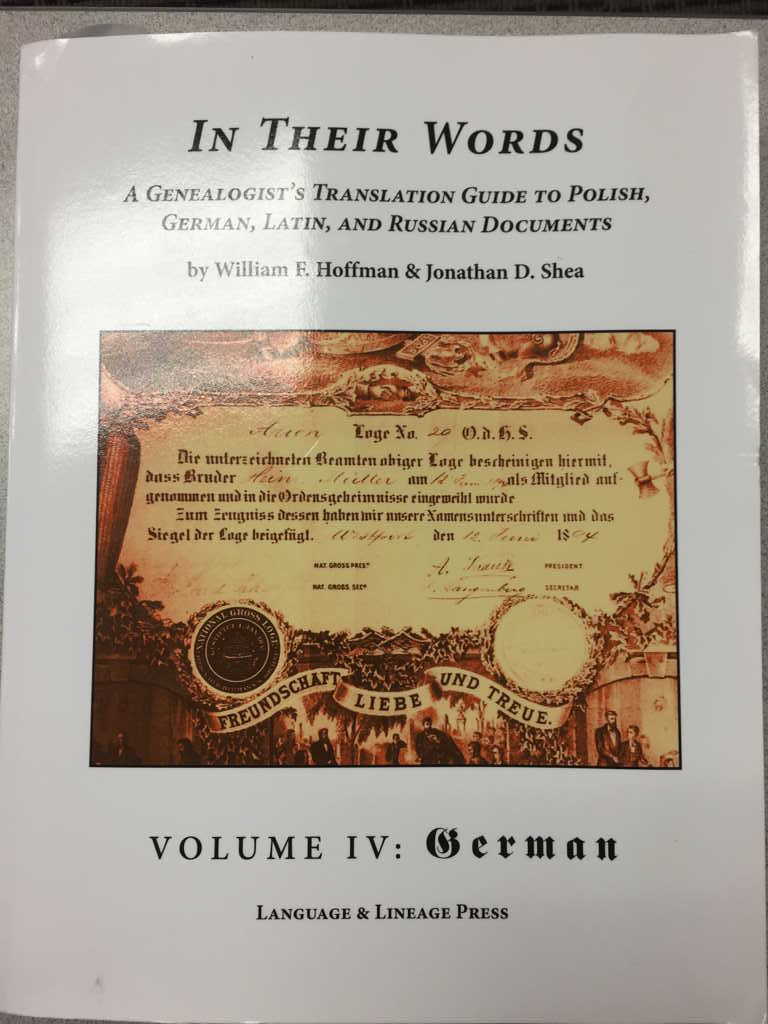






Comments